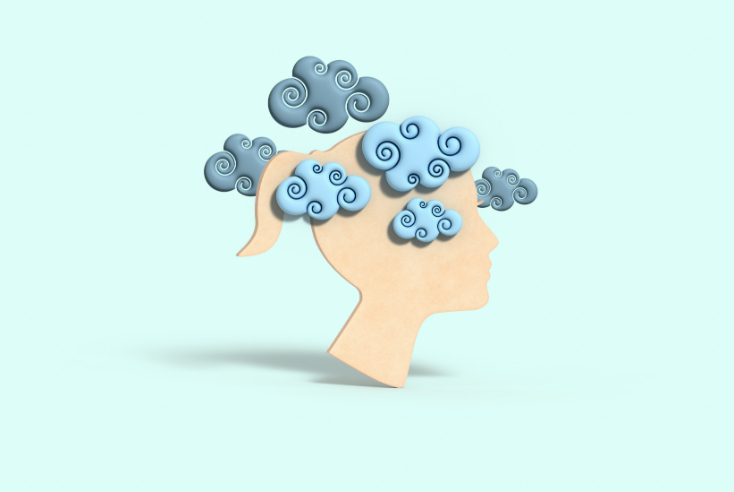'Menopause only happens to white women': getting real about ‘The Change’

Opinion
As World Menopause Day shines a light on brain fog and memory issues — should we recognise the super power of menopausal women in a world of uncertainty and ambiguity?
Ahead of World Menopause Day I spoke to four women about their peri-menopausal and menopausal experiences.
Although menopause has become more openly discussed of late, sharing personal experiences takes bravery.
The reality is that sufferers hold back, especially where it’s connected to symptoms such as brain fog and memory loss. There is an understandable fear that sharing these experiences may be held against them or negatively impact their career.
It is especially difficult in our industry where change is constant. There is perhaps an expectation that in order to thrive you need to be capable of dealing with pace.
Menopausal women face the double and triple biases of gender, age, and for some ethnicity related barriers.
As Karen Arthur, podcaster and speaker, said at the recent Boots Menopause Monologues event: “The menopause only happens to white women. I know because I image searched the menopause and all I saw was a sea of white women, with silver hair in beige clothing”
It’s no wonder then that the majority choose to remain silent, or simply support from the sidelines, without revealing their own personal stories.
Without these personal stories in the public domain it’s difficult to move from raising awareness to driving a better appreciation of the issues and the support required.
Four women share their stories
This year’s World Menopause Day theme is brain fog and memory loss. In the spirit of driving change, and with support from my fellow Bloom members, I’m lifting the lid on this issue in the context of the challenges and opportunities in our workplaces.
Suzy Jordan, Bloom Member, describes how she felt when this debilitating symptom first started happening for her.
“I pride myself on having a really good memory, so I have found it particularly challenging to lose this aspect of myself. In practical terms I find myself losing my thread in the middle of a meeting or presentation and even forgetting the names of people I have worked with for years. I am very fortunate to work at a company where open and honest dialogue is encouraged.”
This is exactly the type of support that the Bloom Menofesto recommends. The Bloom Menofesto offers best practical guidelines for employers looking to support menopausal and peri-menopausal women..
Sue Todd, CEO of NABS, agrees, adding her own perspective to this change that can come on very suddenly.
“At the beginning it was terrifying — an unexpected and almost overnight change for me. I remember saying to a colleague that it was like having what I’d felt (and totally taken for granted) was a perfectly functioning, fast-thinking, rational and positive brain and it being replaced overnight with a crap one!”
Lillian Betty, a content marketing specialist, describes how she copes. “Brain fog can be disorientating. It is difficult to explain and can interrupt the flow of your work. I make more notes. Ensure meetings are productive. I use voice notes to capture and document my thoughts. I find transcribing these is a useful way to process and prioritise my actions.”
Todd also describes how naming it has helped her normalise the experience: “There’s no question that I have had moments when losing a thought/word/idea mid-sentence has happened during work conversations. It’s embarrassing but I’ve now learnt to call it out.”
It would be easy to put some of these symptoms down to age. I’m sure there are many people who are not menopausal who can relate to them.
However, for me what makes it specific to peri-menopause is there are times when I go through days in a fog. It feels cyclical and it does lift after a period of time.
On those days it takes a lot longer to think things through. When I’m being kind to myself I don’t question my abilities to think strategically, but the energy required to get to the answer feels much harder.
At the same time as opening up the conversation and sharing experiences it’s also really important to challenge assumptions. The menopause is one of the biggest life changes women go through and that experience also provides huge value.
Dealing with and incorporating change
In our industry we associate change with speed, and concepts like the V in VUCA — volatility. But to deal with change you also need to be capable of dealing with uncertainty and ambiguity.
Brain fog is the very manifestation of these things, so women that experience it have been through something incredibly relevant to the times that we are in.
They can bring this experience to bear on the work they do by applying what the menopause has taught them — for many this is the ability to do things differently.
All the menopausal women I’ve spoken to over the years agree that whilst it’s challenging and the symptoms can feel negative, there is a sense of a new lease of life where you can do things differently. This is both liberating and is often accompanied with a sense of having a fresh perspective.
The idea of doing things differently speaks to the benefits of employing a diverse workforce. It is broadly acknowledged that employing people from different backgrounds provides tangible business value.
According to a study from McKinsey ‘Why Diversity Matters’ companies that have higher degrees of racially and ethnically diverse employees have a 35% performance advantage. I’d argue that brains that work differently are part of the same diversity argument.
On World Menopause Day it’s important to recognise and support women going through these changes. There is still much work to be done in our organisations to ensure we hold on to this type of talent.
Todd says: “Talk about it. Create safe spaces for conversations. The stigma and fear needs to be eradicated . Menopause policies are a great way forward.”
Caroline Wilkinson, Bloom Member, agrees, adding: “I think all businesses need to offer as flexible a policy and working conditions as possible for Menopausal women. The statistics of how many women leave work because of it are shocking.”
Bloom MPower has created such a policy for all organisations to use — the Bloom Menofesto. You can download this policy here: https://www.bloomnetwork.uk/menofesto
Bloom Mpower has also established a unique employee nominated accreditation, so that those companies that are truly doing right for their female employees can receive an Mpower accreditation in recognition of their efforts..
Bloom hope to see many more companies being awarded this accreditation.
 Anna Sampson is the founder of Anna Sampson Consulting and was previously insight and strategy director at magazine marketing body Magnetic.
Anna Sampson is the founder of Anna Sampson Consulting and was previously insight and strategy director at magazine marketing body Magnetic.
Career Leaders: The Media Leader‘s weekly bulletin with thought leadership, news and analysis dedicated about media careers, training, development and wellbeing.
Sign up for free to ensure you stay up to date every Tuesday.
For more information about Menopause at work, together with expert advice on treatments and support check out the Demystifying the Menopause Podcast.



